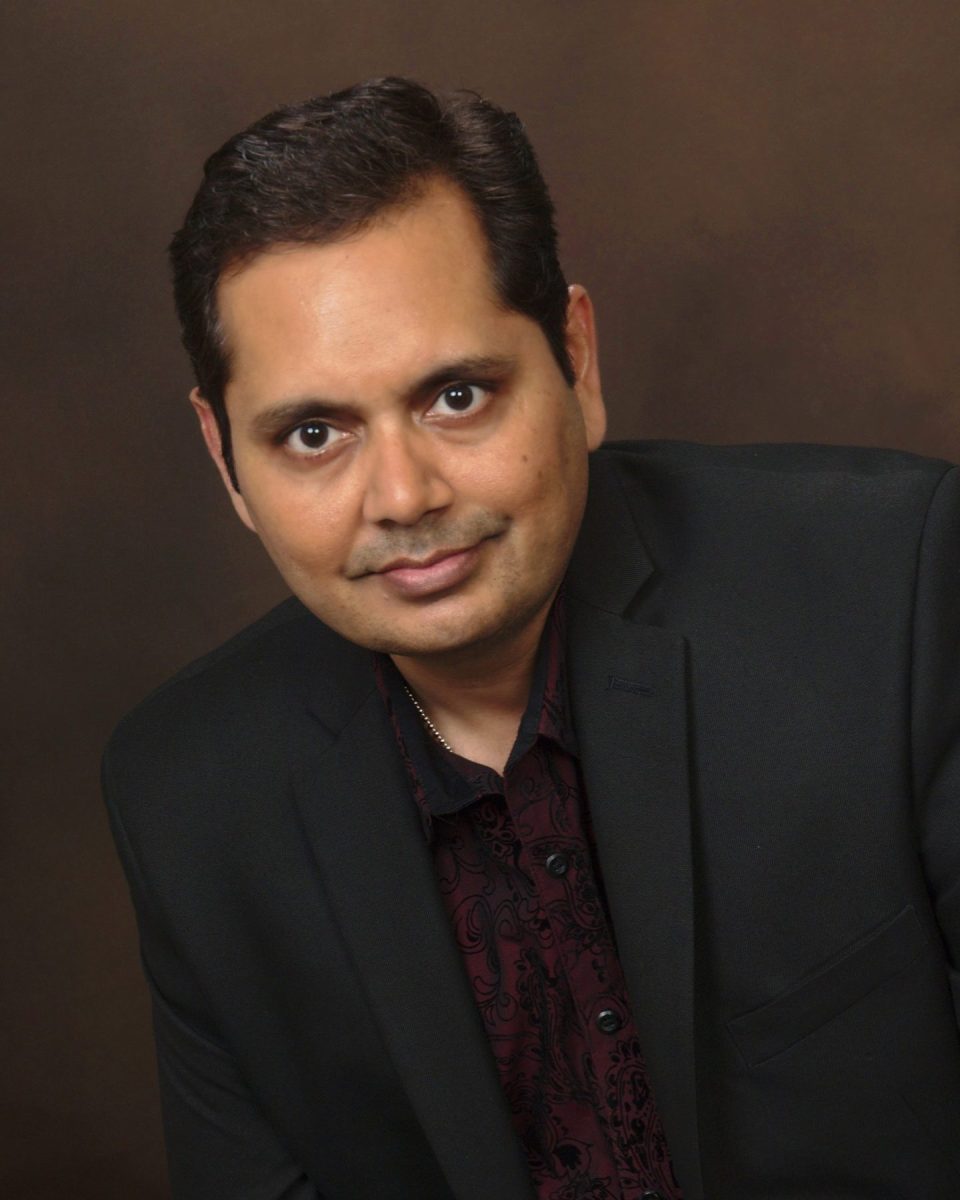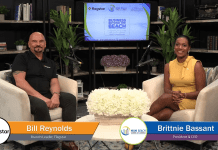|
Getting your Trinity Audio player ready...
|
By Bimal Shah, CLU, CHFC, CASL bimals@bizactioncoach.com
We have enemies everywhere. Today we’re going to talk about the Seven Enemies of Wealth. Enemies that can take any, all, or some of your wealth much faster than you can imagine. I have included in this article simple steps that you can take today, which can help protect your wealth from these enemies.
Enemy #1: Lack of Planning and Discipline
• Lack of a Systematic Financial Decision Making Process: Without proper planning and discipline, it is impossible to build wealth-slowly or otherwise. 94 percent of the time the failure is as a result of an improper system. Every moment we make decisions and many of those are financial. Whether it is deciding on an investment, selecting which restaurant to eat, which gas station to pump gas, which clothes to buy, we are surrounded by the need to make appropriate financial decisions almost several times in an hour. Planning is a lifetime process and it is not a things to do. You are going to need to be planning till the day you die, so hire a great financial and success coach.
• The first step is to have a Budget. It should include all expenses, your daily coffee at Starbucks, the hair-cuts or beauty treatments that you get, newspapers or magazines that you occasionally buy, the travel trips you do, the money you spend for gifts, movies and the list could be extremely long. This is the first important step in financial planning. Then, we need to find out if there are any expenses that aren’t really necessary to maintain the lifestyle you live. If you have discovered some of those, Bingo! You now have discovered Hidden Assets. Carefully deduct those from the total. You want to add some for any miscellaneous expenses, typically 2-3%.
Purpose of Doing a Budget for The Wealthy: The people who spend money and want to maintain a lifestyle many a times do not see the need to maintain a budget. The purpose of the Budget for the wealthy is not to find out where the money is going, but to allocate the spending of money where it brings happiness and meaning to your life and you can make it part of your necessary spending every month.
Purpose of doing a Budget for all others: The purpose of doing a budget is to find out exactly where your funds are going and if they are necessary, if any savings in expenses can be done and if some savings can be allocated to expenses that bring happiness and meaning to your life.
• The next step is to maintain three types of primary personal bank accounts.
- Lifestyle Account: A bank checking account where we pay everyone else. You don’t need to tell the bank that this is your lifestyle account; it is for your reference and understanding.
What Goes In: Only the amount that you have arrived in your budget as a lifestyle account
What Goes Out: This is an account where you pay all your bills. It should not include your retirement plan contributions, IRA contributions, contribution towards your cash-value life insurance, investment accounts, or any type of savings or planning. If after the spending, there is money left at the end of the month, it can either be transferred to the Planning account, or you can go have some fun. The choice is yours.
- Planning Account: This is a Bank checking or savings account from where all your planning takes place.
What Goes In: Pay Checks in Excess of what your lifestyle is or any money you receive more than what’s needed for your lifestyle. What Goes Out: All your future retirement planning, planning for family’s well-being in the event of your death, protecting your most important asset (income) through disability insurance, and protecting your health through additional health insurance like long-term care or critical illness policies. Planning without a written action plan and quarterly monitoring is meaningless. Also, it is meaningless without having an independent, honest, unbiased financial advisor by your side that represents your interest and not theirs. There shouldn’t be any money left in this account at the end of the month. The money should be invested to meet your three year goals and long-term goals.
- Wage Account (Emergency Account): You need to title your emergency account as a Wage account as Wages of up to six months cannot be garnished from creditors (some exceptions). Also, the direct deposit of your wages for a period of three months (at a minimum) can go into this account.
What Goes In: Direct Deposit of your pay checks or your net pay-check
What Goes Out: Only transfers to your Lifestyle and Planning account.
Planning for security against these enemies of wealth is a foundation to being wealthy (Wealth + SecuritY = WealthY)
Enemy #2: Debt: Many misunderstand debt. Some might feel we should live debt free others believe leveraging debt is good. You should understand two fundamental rules of thumb when it comes to debt.
Rule # 1: Debt to Liquidity Ratio: At a minimum, you should maintain at least 10 percent liquidity to debt, and 25 percent is very good. Liquidity can come in many forms-checking accounts, savings accounts, business checking and savings accounts, investment accounts, loan available through 401K accounts, and cash value life insurance. For example, if you own 4 properties and the debt on all properties totals to one million, you should at a minimum have $100,000 between all the liquidity sources.
Rule # 2: Differentiating Good Debt and Bad Debt: Any debt such as home loan, equity line, and property loans that are below 6 percent, there are tax advantages, and business loans or lines of credit that are not in the double digits fall in the category of good debt as long as rule # 1 of liquidity is followed. Debt that starts from double digits going to high double digits such as credit cards is considered bad debt. Bad debt should not exist and it should be paid off every month. The pay off rule doesn’t apply to zero percent Balance transfer offers that should be paid off by the time that offer expires. Does this mean you should close all credit card accounts? No, closing your credit cards can negatively impact your credit. Maintaining and improving your credit score can be accomplished by a good solid payment history and low credit card balances. Are credit cards a source of emergency funds?—Absolutely not. The source of your emergency funds should be your emergency account and for many emergencies, today there is an insurance for it. Should I take cash advances from my Credit Card?—Absolutely Not—It is not an ATM Card!! It is a Credit Card. It is very important to keep your cards open for a long long time with solid payment history. The older your credit history and longer the same card has been in your possession, the positively it will impact on your credit.
Enemy # 3: Taxes: It is absolutely imperative to pay the least necessary tax. In order to make sure you are paying the least necessary tax, you should be working with a team of Certified Public Accountant, Independent Third Party Administrator, Attorneys, Independent Insurance agents, benefit experts, and Independent Financial Advisors. This may sound like an overwhelming task but our firm founded on the principles of providing independent, unbiased advice has above mentioned team already in place to provide assistance. Does this mean, it is going to cost you a lot of money? Not really, and if you crunch the numbers, you will be way ahead in the game by planning properly and paying the least necessary tax every year than paying the most tax you can pay. Planning for the least necessary tax shouldn’t take away money from your lifestyle and wage account (discussed earlier).
Enemy # 4: Unexpected Events: It is very important to be fully prepared for the unexpected as it could turn your life, family, business, or livelihood around. Whether it is death, sickness, loss of job, loss of business, loss of finances, market losses, death or sickness of a family member, lawsuits, accidents, property damages, proper insurance is essential. Also, working with a knowledgeable team can often help you structure creative strategies on how to pay for the insurances, resulting in a net low out of pocket cost for the insurances. For example if you used pre-tax or tax-free dollars for paying the insurances, you have effectively reduced your cost by anywhere from 20 percent to 50 percent and in some cases even eliminate the out of pocket cost through strategic planning. There are so many insurances out there and how do you know which one to get and which one to not? The insurances you buy should be for one of the four reasons- 1) Insurance that protects you and your family’s health 2) Insurance that protects or replaces your assets and your income 3) Insurance that protects you and your family 4) Insurance that is mandatory.
If you follow the above rules, it is a great improvement.
Enemy #5: Losses: The Best way to make more money is to lose less money. Many chase high returns as making a lot of money too soon has a lot of greed and excitement attached to it. However, it is very important to understand system of market cycles. The first step should be to hire an independent and unbiased Fee based financial advisor who has a very unique process of financial planning that covers all aspects of your planning. Also someone shouldn’t put their foundational retirement assets and college education funding assets to very high risk. In order to find out the foundational retirement assets, you need to answer the question in rule #1.
• Rule # 1: Answer the following question: What is the monthly income I would absolutely want to have if I was age 65 today? At a minimum, you should have the assets required to reach that goal and your children’s college education goals set aside in assets that protect you from market risk and provide a hedge against market risk.
• Rule # 2: Past Performance is neither an indication nor a guarantee of future results: Investments in any Mutual funds should have a minimum time horizon of five years or more. If Mutual Funds are held for less than 5 years, chances are it will not perform as expected. The selection of mutual funds should be based on fees, portfolio manager tenure, asset allocation, turnover ratio, and history that goes for a long time, 10 years is good and beyond 25 years along with portfolio manager tenure of 20 years or more is great.
• Rule # 3: Asset Allocation is the Key and Diversification may not achieve Asset Allocation. You could be diversified and yet not have proper asset allocation. You may even have repetition of the same type of holdings in different funds or even the same stocks or bonds in different funds. So making sure your asset allocation is according to your risk tolerance and objectives.
Enemy # 6: Lawsuits: It is absolutely imperative to protect your assets from lawsuits. At the same time, it is absolutely essential that you work with a good attorney who can provide you the best asset protection planning according to your needs and objectives In addition, getting a second opinion is as important. Thirdly, please make sure your assets are properly aligned to the plan you have structured and designed. Otherwise, all the planning you have done is meaningless. This may sound like an overwhelming task but our firm founded on the principles of providing independent, unbiased advice has above mentioned team of attorneys already in place to provide assistance. Does this mean, it is going to cost you a lot of money? Not really, and if you crunch the numbers, you will be way ahead in the game by planning properly and protecting your assets from lawsuits. So many of you think is it really possible to do asset protection planning. The answer is yes. But to do it right takes a team—not just an attorney or an accountant or a financial advisor or a business coach or an insurance agent or a liability insurance agent. You need all of them!! On top of it you need them to act as your independent advisory Board and work without a conflict of opinion! Many of you may think that is impossible to achieve. Those who feel that way can come to me and I will make them realize that is possible. Asset protection planning is designed to build layers and layers of protection. Sort of like the Great Wall of China at every stage to make it extremely difficult for someone to penetrate each layer. Many a time Asset Protection planning is done only on the Inside and not on the Outside. What I mean by that is visualize your business wealth as a Castle and there is a dragon who can attack it from the Inside who we would call the Inside Dragon. There is the first Protection layer you need to design. Consider that there is a Dragon who can attack your business wealth from the outside who has no relation to the business you are doing and you need to design and fund a layer for the Outside Dragon. This is asset protection.
Enemy # 7: Unintended Heirs & Separation: It is very important to plan your legacy. If you do not, strangers and the government will inherit your money and assets. After all, if you are working 8-13 hours in a day to make money and build assets for your loved ones, shouldn’t you spare two-three hours a month or even a quarter to sit down with qualified professionals such as a team of advisors, accountants, attorneys to make sure your money and assets go to people you intend to leave it to. Otherwise, you might as well stop working. It is also possible to plan for a multi-generational legacy that could continue well beyond three generations and also protect your assets from all the Seven enemies of wealth.
Separation: It is an extremely sensitive issue. I would say Divorce is worse than Death. So it is very important to first work towards making sure you have a very happy and ever lasting marital relationship. Do not do anything to mess it up. If the inevitable has to happen, most of the time the assets get split right down the middle. It is very sad and disappointing to see that in some cases that end up in court that even minor children are also treated as a piece of property—They are human beings and they are the future of this world. By making a decision to get separated, especially with very young children, there is a fundamental destruction of the upbringing of the future of this world. I can vouch for the same as I was a minor child of divorced parents and neither one took proper care of me. So get married to someone who loves you very much and return that love ten fold back to him or her.
Please visit http://www.theoneyearbreakthrough.com/thrive/ to access some of the top most financial calculators to create your own financial blueprint for Free. It is the first and most important step towards creating your own financial plan. To hire Bimal as a financial consultant, coach or speak to you and your organization, please email him at bimals@bizactioncoach.com. You can visit his website at www.TheOneYearBreakthrough.com or reach him at 954-579-1254.






